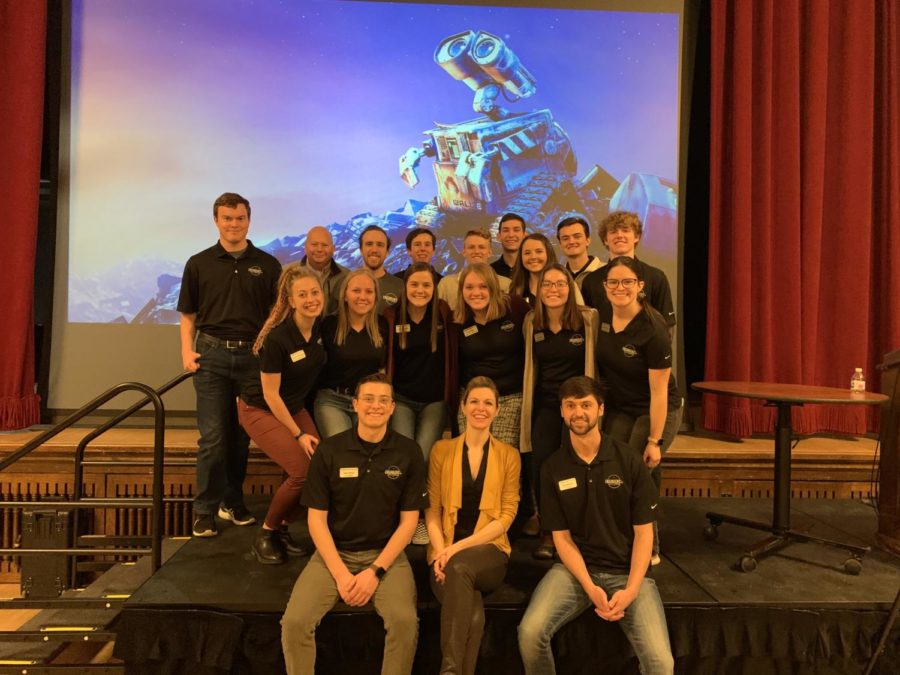Research specialist discusses human-robot interaction as part of Engineers’ Week
February 20, 2020
Kate Darling, research specialist from the Massachusetts Institute of Technology, discussed the future of human-robot interaction as Engineers’ Week keynote speaker on Thursday in the Great Hall of the Memorial Union.
“The public’s perception of where we are in robotics and where we actually currently are is actually not quite the same […],” Darling said. “My interest in these technologies is that they are shaping a world that my child grows up in.”
Darling lectured in a professional yet laid-back tone while often cracking jokes with the audience, like when she explained how she named her Google Home after her friend. She utilized a video and photo presentation as her visual aid, bringing her stories to life.
Darling brought in a robot that was made in 2007, which was roughly $500 when she bought it. She revealed the green, dinosaur-shaped robot named Mr. Spaghetti, which made the audience audibly laugh. She then asked a student to go up on stage and hold the dinosaur upside down by the tail, while it squirmed and made sounds of distress. After putting the robot down, Darling had to pet it so it would “calm down.”
This brought the themes of the lecture to light — the differences between human and artificial intelligence, social robotics and humans’ empathy to robots.
Darling then went on to discuss robot usage in social situations. The examples she brought up were formed around inclusivity of all types of people. People with autism will often engage willingly with a robot in situations where they wouldn’t engage with a person.
Robots can also facilitate interaction between a child and a caregiver and improve children’s social skills. They could also be effective tools for teachers in a classroom. Robotic seals are used in nursing homes to supplement animal therapy to residents, helping to calm anxious residents.
People tend to personify inanimate objects by giving them names or projecting emotions on them, like they would a pet.
Darling also spoke about some negatives of social robots, such as computational errors that can cause problems and how robots have the potential to influence human empathy through desensitization.
Melissa Hall, senior in psychology, asked Darling a question, despite her nerves, about creators’ responsibility for flawed robots, to which Darling responded with transparency of the issues that are being presented.
“My decision to come was this inherent interest in robotics and [artificial intelligence],” Hall said. “Also it was really wonderful to be able to see a woman on stage talking about what she loves and is passionate about. It’s science, it’s so cool.”
Trenten Goode, senior in mechanical engineering, came to find more event ideas to include in his club.
“I thought that this would give us more insight on what we could possibly look into as an organization and bring in guest speakers to our meetings to talk about ethics, not just in engineering but in all majors,” Goode said.
At the end of the lecture, Darling urged the audience to recognize the importance of representation in engineering, and thinking out of the box.
“Instead of just trying to recreate human intelligence in the [artificial intelligence] field, or recreate people’s abilities for the human world, we should be thinking of technology as an extension of our abilities because we can do so much more,” Darling said. “Technology is supposed to be used for so much more than to just recreate what we already have.”







